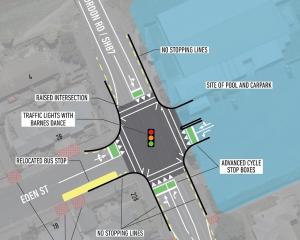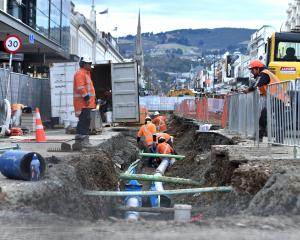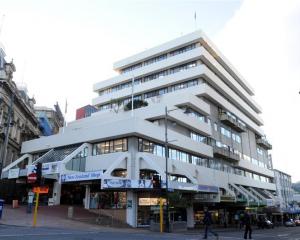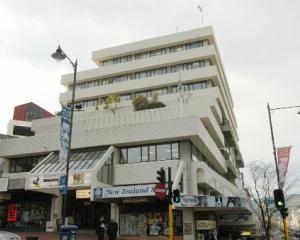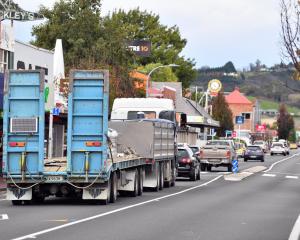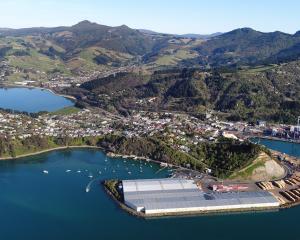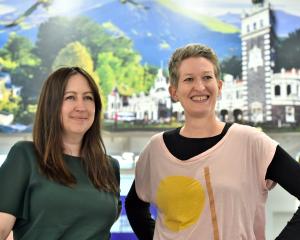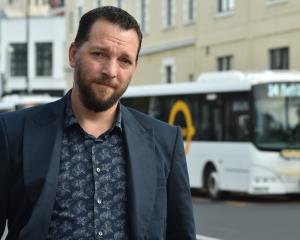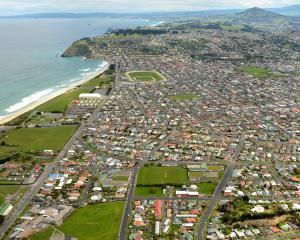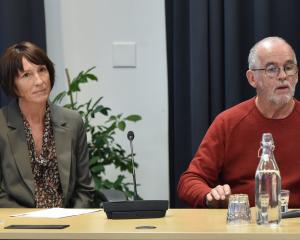
Sports analysis was the growth industry within all sporting codes and ARL believed the cutting-edge technology being developed in Dunedin should be used at the new Forsyth Barr Stadium, in conjunction with the University of Otago and the Dunedin City Council, to develop the best "workshop" in the world.
ARL was prepared to donate millions of dollars worth of technology development, intellectual property and hardware for use at the stadium - with a couple of provisos, Mr Taylor said.
A "drop-in" cricket pitch was essential, not for playing cricket matches but for training talented young cricketers using a virtual field setting.
"The deal is our kids get it for free. We will say the ratepayers paid for the stadium so the kids can use it for free while we test our equipment. That is how we make it a community asset."
Many small companies in Dunedin were doing amazing things and adding to the mix, he said.
Mr Taylor was constantly surprised by the opposition he found among some people at the university towards using the stadium. The stadium was being built and ways it could best be used should be developed.
For the university, there was the opportunity to develop courses around sports analysis. As far as Mr Taylor was aware, there were no courses for sports analysis but if papers were created, students would be attracted to Otago because of the courses and the technology on offer.
"I want a meeting of the minds. I want my guys working with the bright young minds of the university who can help further develop the technology.
"Those young people can then go on to work around the world using New Zealand-developed technology. I have young people working now around the world on the PGA [US-based professional golf circuit] with our technology."
However, the offer was not just about cricket, despite ARL providing graphics to Nine Network (Australia) and BSkyB (UK) for the Ashes cricket series between Australia and England.
Technology developed by ARL was being used for golf, Formula One racing, sailing, rowing and player tracking.
"At no cost, this all goes into the stadium, making it the world's best sports analysis centre."
ARL was keen to talk to the university's physics department to find better ways to track a cricket ball being bowled at more than 100kmh, and the engineering department to find a way of attaching cameras to windsurfers so television viewers could be closer to the action, Mr Taylor said.
Among his plans for the stadium were allowing young golfers to play virtual holes at courses like St Andrews and Whistling Straits, where last week's PGA championship was held.
A tourist attraction could be developed around the virtual golf, with visitors able to ask to play specific holes at specific courses.
"This vision is not years out. If they had a roof on the stadium now, we could put the technology in there tomorrow."
Mr Taylor paid tribute to the Dunedin City Council for helping the company win the valuable Ashes contract. The council's $170,000 grant gave ARL the confidence to talk to specialists in Australia and South Africa and offer to fly them to Dunedin at short notice, if needed.
ARL could cover the costs without worrying about cutting into its development budget.
The DCC grant directly related to the success of winning the contract, he said. Without it, ARL would not have been in a position to bid for the contract for at least another two years.
Sports analysis was the growth industry within all sporting codes and ARL believed the cutting-edge technology being developed in Dunedin should be used at the new Forsyth Barr Stadium, in conjunction with the University of Otago and the Dunedin City Council, to develop the best "workshop" in the world.
ARL was prepared to donate millions of dollars worth of technology development, intellectual property and hardware for use at the stadium - with a couple of provisos, Mr Taylor said.
A "drop-in" cricket pitch was essential, not for playing cricket matches but for training talented young cricketers using a virtual field setting.
"The deal is our kids get it for free. We will say the ratepayers paid for the stadium so the kids can use it for free while we test our equipment. That is how we make it a community asset."
Many small companies in Dunedin were doing amazing things and adding to the mix, he said.
Mr Taylor was constantly surprised by the opposition he found among some people at the university towards using the stadium. The stadium was being built and ways it could best be used should be developed.
For the university, there was the opportunity to develop courses around sports analysis. As far as Mr Taylor was aware, there were no courses for sports analysis but if papers were created, students would be attracted to Otago because of the courses and the technology on offer.
"I want a meeting of the minds. I want my guys working with the bright young minds of the university who can help further develop the technology.
"Those young people can then go on to work around the world using New Zealand-developed technology. I have young people working now around the world on the PGA [US-based professional golf circuit] with our technology."
However, the offer was not just about cricket, despite ARL providing graphics to Nine Network (Australia) and BSkyB (UK) for the Ashes cricket series between Australia and England.
Technology developed by ARL was being used for golf, Formula One racing, sailing, rowing and player tracking.
"At no cost, this all goes into the stadium, making it the world's best sports analysis centre."
ARL was keen to talk to the university's physics department to find better ways to track a cricket ball being bowled at more than 100kmh, and the engineering department to find a way of attaching cameras to windsurfers so television viewers could be closer to the action, Mr Taylor said.
Among his plans for the stadium were allowing young golfers to play virtual holes at courses like St Andrews and Whistling Straits, where last week's PGA championship was held.
A tourist attraction could be developed around the virtual golf, with visitors able to ask to play specific holes at specific courses.
"This vision is not years out. If they had a roof on the stadium now, we could put the technology in there tomorrow."
Mr Taylor paid tribute to the Dunedin City Council for helping the company win the valuable Ashes contract. The council's $170,000 grant gave ARL the confidence to talk to specialists in Australia and South Africa and offer to fly them to Dunedin at short notice, if needed.
ARL could cover the costs without worrying about cutting into its development budget.
The DCC grant directly related to the success of winning the contract, he said. Without it, ARL would not have been in a position to bid for the contract for at least another two years.


